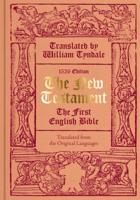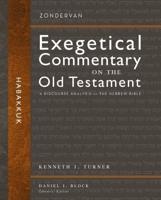Publisher's Synopsis
Excerpt: CHAPTER I. THE NATURE OF HOLY MASS. THE Holy Mass is called in Latin sacrificium, a sacrifice, by which word a thing far greater and higher than an offering is signified. A sacrifice, in its full and proper signification, is an offering external to ourselves, made to the most high God, and consecrated or hallowed in a solemn manner by a lawfully appointed and duly qualified minister of the Church, to recognize and testify to the supreme dominion of Almighty God over all creatures. From this definition it will be seen that a sacrifice is much more than a simple offering. It represents a lofty and sublime act of worship, due to the infinite God alone, and not to any creature. That this solemn sacrifice may be offered to none other but God alone is proved by St. Augustine from the universal custom of all nations. Who, he says, has ever been found to assert that sacrifice should be offered to any one save the true God only, or to such false deities as are wrongfully held to be the true God? And in another place he says: The devil would not require sacrifices from his votaries if he did not know this to be a prerogative of the divinity. Many of the great and powerful ones of the earth have arrogated to themselves other acts of homage which are of right paid to God alone; but few indeed have presumed to command that sacrifice should be offered to them. Those who did this desired to be regarded as gods. Hence it may be seen that the offering of sacrifice is an act of divine worship, which it is not fitting to pay to men, to the saints, or to the angels, but to God alone. St. Thomas of Aquin says: "It is natural to mankind to make sacrificial offerings to the omnipotent God, and man is incited thereto by a natural instinct without an express command or special injunction. This we see exemplified in the case of Abel, Noe, Abraham, Job, and other patriarchs, who offered sacrifice, not in obedience to the law of God, but to the mere impulse of nature. And not only did those persons who were enlightened by God offer sacrifices to Him: the heathen also, simply following the light of nature, sacrificed to their idols, believing them to be true deities. In later times the law given by God to the children of Israel made it obligatory upon them to offer sacrifice to Him daily; on feasts a more elabourate ceremonial was to be observed. They were to offer to Him lambs, sheep, calves, and oxen; and these animals were not to be offered only, they were to be immolated by an anointed priest, with certain prayers and ceremonies. They were to be slaughtered, flayed, their blood was to be poured round about on the altar, and their flesh burnt upon the altar, amid the blowing of trumpets and chanting of psalms. These were the sacred oblations whereby the Jews were wont to pay to God the homage due to Him, and acknowledge Him to be the supreme Ruler over all creatures. Inasmuch as the idea of sacrifice is so deeply rooted in human nature that all peoples and nations, besides serving God with prayers, hymns, almsgiving, and works of penance, offered some kind of sacrifice whereby they honoured the true God or the false deities they venerated as such, it was meet, nay, it was even necessary, that Christ should institute in His Church a Holy and divine oblation as a visible service, whereby the faithful should give to God the glory which is His due, and express their own subjection to Him. No sensible man could imagine that Christ, Who ordained everything in His Church in the most perfect manner, should have omitted this highest act of worship, and left it wanting in so all important a matter. Were it so, the Christian religion would be inferior to Judaism, for the sacrifices of the Old Testament were so glorious that heathens of distinction came from distant lands to assist at them, and some heathen kings, as we read in Machabees (II 3:3), even paid out of their revenues the charges belonging to the ministry.










